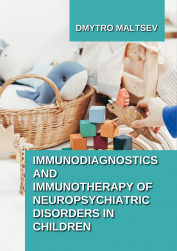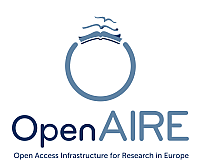Results of valacyclovir, valganciclovir, artesunate for the treatment of reactivated EBV-, HHV-6-, HHV-7-infections in children with autism spectrum disorders associated with genetic deficiency of the folate cycle
Keywords:
immunodiagnostics, immunotherapy, neuropsychiatric disorders, children, diagnostics, therapySynopsis
Autism spectrum disorders (ASD), which currently affect at least 1 % of the modern child population and continue to increase in prevalence, are a global problem that requires urgent attention. However, the FDA has not yet approved any drug to modify the course of ASD in children or to treat mental illness. The results of 5 recent meta-analyses and systematic reviews of randomized controlled trials demonstrate the association of ASD with genetic deficiencies of folic acid cycle enzymes (GDFC), which sheds light on the pathogenetic pathways of the formation of a state of transmethylation disorders, persistent oxidative stress, immunodeficiency and related immune dysregulation, and reactivation of opportunistic infections, which are considered important pathways of brain damage in children with ASD.
According to the data of a systematic review by Hughes H.K. et al. on the state of the immune system, children with ASD have impaired cytokine balance, quantitative disorders of immunocompetent cells, signs of persistent neuroglial inflammation in the CNS, defects in the functioning of the adaptive and innate immune systems, pathological deviations in serum concentrations of immunoglobulins of different classes and subclasses, as well as signs of autoimmune reactions to neurons, myelin, and extracerebral autoantigens.
Due to immune dysfunction in ASD, resistance to a number of microorganisms is reduced. A number of clinical reports and results of controlled studies have been published on the development of severe infections caused by opportunistic and conditionally pathogenic microbial agents in children with ASD. This phenomenon can be explained by the damage to the immune system induced by both GDFC and other genetic abnormalities associated with ASD. One of the key intracellular opportunistic agents that undergo reactivation in the body of children with ASD is herpesviruses. Currently, the typical development of infections caused by various types of herpes in children with ASD has been repeatedly reported, including reactivation of HSV-1, EBV, CMV and HHV-6.
References
Indika, N.-L. R., Frye, R. E., Rossignol, D. A., Owens, S. C., Senarathne, U. D., Grabrucker, A. M. et al. (2023). The Rationale for Vitamin, Mineral, and Cofactor Treatment in the Precision Medical Care of Autism Spectrum Disorder. Journal of Personalized Medicine, 13 (2), 252. https://doi.org/10.3390/jpm13020252
Pu, D., Shen, Y., Wu, J. (2013). Association between MTHFR Gene Polymorphisms and the Risk of Autism Spectrum Disorders: A Meta‐Analysis. Autism Research, 6 (5), 384–392. https://doi.org/10.1002/aur.1300
Shaik Mohammad, N., Sai Shruti, P., Bharathi, V., Krishna Prasad, C., Hussain, T., Alrokayan, S. A. et al. (2016). Clinical utility of folate pathway genetic polymorphisms in the diagnosis of autism spectrum disorders. Psychiatric Genetics, 26 (6), 281–286. https://doi.org/10.1097/ypg.0000000000000152
Rai, V. (2016). Association of methylenetetrahydrofolate reductase (MTHFR) gene C677T polymorphism with autism: evidence of genetic susceptibility. Metabolic Brain Disease, 31 (4), 727–735. https://doi.org/10.1007/s11011-016-9815-0
Sadeghiyeh, T., Dastgheib, S. A., Mirzaee-Khoramabadi, K., Morovati-Sharifabad, M., Akbarian-Bafghi, M. J., Poursharif, Z. et al. (2019). Association of MTHFR 677C>T and 1298A>C polymorphisms with susceptibility to autism: A systematic review and meta-analysis. Asian Journal of Psychiatry, 46, 54–61. https://doi.org/10.1016/j.ajp.2019.09.016
Li, Y., Qiu, S., Shi, J., Guo, Y., Li, Z., Cheng, Y., Liu, Y. (2020). Association between MTHFR C677T/A1298C and susceptibility to autism spectrum disorders: a meta-analysis. BMC Pediatrics, 20 (1). https://doi.org/10.1186/s12887-020-02330-3
Sun, L., Wang, X., Wang, X., Cui, X., Li, G., Wang, L. et al. (2022). Genome-wide DNA methylation profiles of autism spectrum disorder. Psychiatric Genetics, 32 (4), 131–145. https://doi.org/10.1097/ypg.0000000000000314
Liu, X., Lin, J., Zhang, H., Khan, N. U., Zhang, J., Tang, X. et al. (2022). Oxidative Stress in Autism Spectrum Disorder – Current Progress of Mechanisms and Biomarkers. Frontiers in Psychiatry, 13. https://doi.org/10.3389/fpsyt.2022.813304
Hughes, H. K., Mills Ko, E., Rose, D., Ashwood, P. (2018). Immune Dysfunction and Autoimmunity as Pathological Mechanisms in Autism Spectrum Disorders. Frontiers in Cellular Neuroscience, 12. https://doi.org/10.3389/fncel.2018.00405
Ghaziuddin, M., Tsai, L. Y., Eilers, L., Ghaziuddin, N. (1992). Brief report: Autism and herpes simplex encephalitis. Journal of Autism and Developmental Disorders, 22 (1), 107–113. https://doi.org/10.1007/bf01046406
Valayi, S., Eftekharian, M. M., Taheri, M., Alikhani, M. Y. (2018). Evaluation of antibodies to cytomegalovirus and Epstein-Barr virus in patients with autism spectrum disorder. Human Antibodies, 26 (3), 165–169. https://doi.org/10.3233/hab-180335
Sakamoto, A., Moriuchi, H., Matsuzaki, J., Motoyama, K., Moriuchi, M. (2015). Retrospective diagnosis of congenital cytomegalovirus infection in children with autism spectrum disorder but no other major neurologic deficit. Brain and Development, 37 (2), 200–205. https://doi.org/10.1016/j.braindev.2014.03.016
Nicolson, G. L., Gan, R., Nicolson, N. L., Haier, J. (2007). Evidence for Mycoplasma ssp., Chlamydia pneunomiae, and human herpes virus‐6 coinfections in the blood of patients with autistic spectrum disorders. Journal of Neuroscience Research, 85 (5), 1143–1148. https://doi.org/10.1002/jnr.21203
Wipfler, P., Dunn, N., Beiki, O., Trinka, E., Fogdell-Hahn, A. (2018). The Viral Hypothesis of Mesial Temporal Lobe Epilepsy – Is Human Herpes Virus-6 the Missing Link? A systematic review and meta-analysis. Seizure, 54, 33–40. https://doi.org/10.1016/j.seizure.2017.11.015
Engdahl, E., Dunn, N., Niehusmann, P., Wideman, S., Wipfler, P., Becker, A. J. et al. (2017). Human Herpesvirus 6B Induces Hypomethylation on Chromosome 17p13.3, Correlating with Increased Gene Expression and Virus Integration. Journal of Virology, 91 (11). https://doi.org/10.1128/jvi.02105-16
Lecointe, D., Fabre, M., Habes, D., Mielot, F., Bernard, O., Nordmann, P. (2000). Macrophage activation syndrome in primary human herpes virus–6 infection: a rare condition after liver transplantation in infants. Gastroentérologie Clinique et Biologique, 24 (12), 1227–1228.
Hama, N., Abe, R., Gibson, A., Phillips, E. J. (2022). Drug-Induced Hypersensitivity Syndrome (DIHS)/Drug Reaction With Eosinophilia and Systemic Symptoms (DRESS): Clinical Features and Pathogenesis. The Journal of Allergy and Clinical Immunology: In Practice, 10 (5), 1155–1167.e5. https://doi.org/10.1016/j.jaip.2022.02.004
Venâncio, P., Brito, M. J., Pereira, G., Vieira, J. P. (2014). Anti-N-methyl-D-aspartate Receptor Encephalitis with Positive Serum Antithyroid Antibodies, IgM Antibodies Against Mycoplasma pneumoniae and Human Herpesvirus 7 PCR in the CSF. Pediatric Infectious Disease Journal, 33 (8), 882–883. https://doi.org/10.1097/inf.0000000000000408
Maltsev, D. (2022). A comparative study of valaciclovir, valganciclovir, and artesunate efficacy in reactivated HHV‐6 and HHV‐7 infections associated with chronic fatigue syndrome/myalgic encephalomyelitis. Microbiology and Immunology, 66 (4), 193–199. https://doi.org/10.1111/1348-0421.12966
Urbakh, V. Iu. (1975). Statisticheskii analiz v biologicheskikh i meditcinskikh issledovaniiakh. Moscow: Meditcina, 295.
Zheng, Z., Zheng, P., Zou, X. (2020). Peripheral Blood S100B Levels in Autism Spectrum Disorder: A Systematic Review and Meta-Analysis. Journal of Autism and Developmental Disorders, 51 (8), 2569–2577. https://doi.org/10.1007/s10803-020-04710-1
Lv, M., Zhang, H., Shu, Y., Chen, S., Hu, Y., Zhou, M. (2016). The neonatal levels of TSB, NSE and CK-BB in autism spectrum disorder from Southern China. Translational Neuroscience, 7 (1), 6–11. https://doi.org/10.1515/tnsci-2016-0002
Binstock, T. (2001). Intra-monocyte pathogens delineate autism subgroups. Medical Hypotheses, 56 (4), 523–531. https://doi.org/10.1054/mehy.2000.1247
Marseglia, L. M., Nicotera, A., Salpietro, V., Giaimo, E., Cardile, G., Bonsignore, M. et al. (2015). Hyperhomocysteinemia and MTHFR Polymorphisms as Antenatal Risk Factors of White Matter Abnormalities in Two Cohorts of Late Preterm and Full Term Newborns. Oxidative Medicine and Cellular Longevity, 2015, 1–8. https://doi.org/10.1155/2015/543134
Sweeten, T. L., Croen, L. A., Windham, G. C., Odell, J. D., Stubbs, E. G., Torres, A. R. (2018). Brief Report: Low Rates of Herpesvirus Detection in Blood of Individuals with Autism Spectrum Disorder and Controls. Journal of Autism and Developmental Disorders, 49 (1), 410–414. https://doi.org/10.1007/s10803-018-3691-x
Gillberg, I. C. (1991). Autistic Syndrome with Onset at Age 31 Years: Herpes Encephalitis as a Possible Model for Childhood Autism. Developmental Medicine & Child Neurology, 33 (10), 920–924. https://doi.org/10.1111/j.1469-8749.1991.tb14804.x
Harberts, E., Yao, K., Wohler, J. E., Maric, D., Ohayon, J., Henkin, R., Jacobson, S. (2011). Human herpesvirus-6 entry into the central nervous system through the olfactory pathway. Proceedings of the National Academy of Sciences, 108 (33), 13734–13739. https://doi.org/10.1073/pnas.1105143108
Monge Galindo, L., Pérez Delgado, R., López Pisón, J., Lafuente Hidalgo, M., Ruiz del Olmo Izuzquiza, I., Peña Segura, J. L. (2010). Mesial temporal sclerosis in paediatrics: its clinical spectrum. Our experience gained over a 19-year period. Revista de Neurología, 50 (6), 341–348. https://doi.org/10.33588/rn.5006.2009448
Singh, V. K., Lin, S. X., Yang, V. C. (1998). Serological Association of Measles Virus and Human Herpesvirus-6 with Brain Autoantibodies in Autism. Clinical Immunology and Immunopathology, 89 (1), 105–108. https://doi.org/10.1006/clin.1998.4588
González Toro, M. C., Jadraque Rodríguez, R., Sempere Pérez, Á., Martínez Pastor, P., Jover Cerdá, J., Gómez Gosálvez, F. A. (2013). Encefalitis antirreceptor de NMDA: dos casos pediátricos. Revista de Neurología, 57 (11), 504–508. https://doi.org/10.33588/rn.5711.2013272
Kiani, R., Lawden, M., Eames, P., Critchley, P., Bhaumik, S., Odedra, S., Gumber, R. (2015). Anti-NMDA-receptor encephalitis presenting with catatonia and neuroleptic malignant syndrome in patients with intellectual disability and autism. BJPsych Bulletin, 39 (1), 32–35. https://doi.org/10.1192/pb.bp.112.041954
Masi, A., Quintana, D. S., Glozier, N., Lloyd, A. R., Hickie, I. B., Guastella, A. J. (2014). Cytokine aberrations in autism spectrum disorder: a systematic review and meta-analysis. Molecular Psychiatry, 20 (4), 440–446. https://doi.org/10.1038/mp.2014.59
Saghazadeh, A., Ataeinia, B., Keynejad, K., Abdolalizadeh, A., Hirbod-Mobarakeh, A., Rezaei, N. (2019). A meta-analysis of pro-inflammatory cytokines in autism spectrum disorders: Effects of age, gender, and latitude. Journal of Psychiatric Research, 115, 90–102. https://doi.org/10.1016/j.jpsychires.2019.05.019
Saurman, V., Margolis, K. G., Luna, R. A. (2020). Autism Spectrum Disorder as a Brain-Gut-Microbiome Axis Disorder. Digestive Diseases and Sciences, 65 (3), 818–828. https://doi.org/10.1007/s10620-020-06133-5
Torrente, F., Ashwood, P., Day, R., Machado, N., Furlano, R. I., Anthony, A. et al. (2002). Small intestinal enteropathy with epithelial IgG and complement deposition in children with regressive autism. Molecular Psychiatry, 7 (4), 375–382. https://doi.org/10.1038/sj.mp.4001077
Secchiero, P., Mirandola, P., Zella, D., Celeghini, C., Gonelli, A., Vitale, M. et al. (2001). Human herpesvirus 7 induces the functional up-regulation of tumor necrosis factor–related apoptosis-inducing ligand (TRAIL) coupled to TRAIL-R1 down-modulation in CD4+ T cells. Blood, 98 (8), 2474–2481. https://doi.org/10.1182/blood.v98.8.2474
Hughes, H. K., Moreno, R. J., Ashwood, P. (2023). Innate immune dysfunction and neuroinflammation in autism spectrum disorder (ASD). Brain, Behavior, and Immunity, 108, 245–254. https://doi.org/10.1016/j.bbi.2022.12.001
Lampiasi, N., Bonaventura, R., Deidda, I., Zito, F., Russo, R. (2023). Inflammation and the Potential Implication of Macrophage-Microglia Polarization in Human ASD: An Overview. International Journal of Molecular Sciences, 24 (3), 2703. https://doi.org/10.3390/ijms24032703









